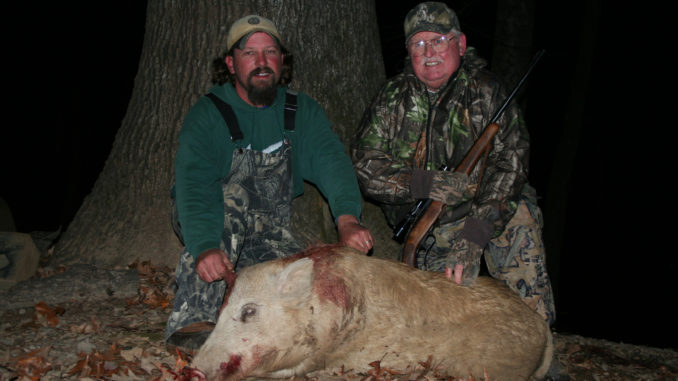
Clemson officials say hog population needs to be controlled by hunting
A bill starting to make its way though the legislature would allow a big expansion of hunting opportunities on Baruch Foundation property north of Georgetown that is home to the Baruch Marine Laboratory, an internationally known scientific research site operated by the University of South Carolina.
Officials at Clemson University, which uses the Baruch Foundation preserve for forest and wildlife research, had recommended several years ago that steps be taken to control the feral hog population on the site. Wild hogs rooting for acorns and other food can be devastating to the habitat and make it increasingly difficult to re-establish native long-leaf pines to the area.
The bill, introduced by Sens. Raymond E. Cleary III (R-Georgetown) and J. Yancey McGill (D-Williamsburg) would allow more hunting for both hogs and whitetail deer, whose populations are growing. It was given a favorable report by the Senate Fish, Game and Forestry Committee last week and was placed on the calendar for debate in the Senate.
While helping control the expanding populations of hogs and deer, opening the area to more controlled public hunting would also bring in thousands of dollars to the Baruch Foundation which has an annual budget of about $800,000.
Officials said hunting would not impact any of the research done on the 17,500-acre site, which the late Belle W. Baruch left to a private trust in the 1960s to be managed as a nature preserve. The Baruch Foundation asked the legislature to ban hunting on the property in 1974 to prevent poaching, which is no longer a problem. The bill currently being considered in the legislature would repeal the part of the law banning hunting on the property.
The Baruch site includes one of the country’s cleanest marsh systems at North Inlet. USC’s research has helped establish baseline data of marine life in an unspoiled inlet system. North Inlet is one of just 27 national estuarine research reserves in the country. Clemson’s work focuses on forests and wildlife throughout the Baruch site.




Be the first to comment